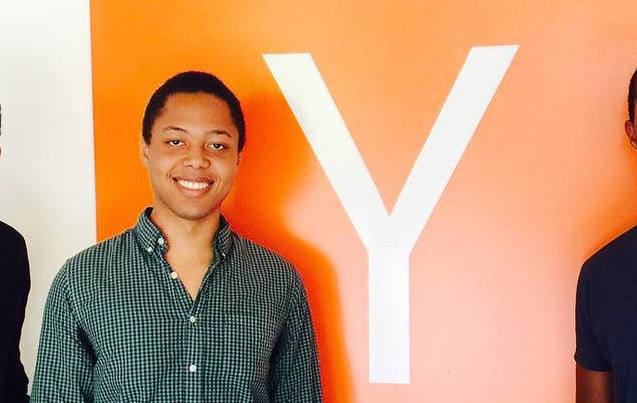Episode 44 – Randolph Brown

Chief Technology Officer at Jopwell
How did you get into technology?
My interest in making things started when I was young. My mom’s an art teacher, so my brother and I were always working on different projects around the house. I played with an astounding amount of LEGOs and got super into origami at some point during middle school.
It wasn’t until college that I learned about programming as a craft, where you can create stuff that is in itself an intellectually stimulating discipline and could also be a fulfilling career.
Sophomore year of college, I started working on just learning some coding myself. I spent that summer teaching myself how to code.I was coding any place I could. The impetus to make things was always there, but it wasn’t really until college that I found a medium.
What are the things that you guys have noticed that has been almost like a pitfall, especially for ‘people of color’ who wanted to get into tech?
I would say one major pitfall is some feeling that underrepresented ethnic minorities are not as able to go into STEM fields. I had applied to Princeton as an engineer, so realistically, I could have done computer science from the beginning. But there is this impression that STEM fields are too hard. I think that’s a general trend, and in my case, I had switched from engineering to economics before even arriving on campus – mostly out of not thinking computer science was for me. I guess that seemed like the more safe and reliable path.
But the concept that “STEM is too hard” is not true. There are crazy smart people out there from all different backgrounds who should be on that path. It’s just a matter of studying, asking for help, and learning more about what’s out there.
I hope to be able to help get across the idea that coding is just like any other sport or discipline. You practice it over and over again. Learn the basics, and then you can go on from there. We need to dispel the sense that it’s too hard because it’s not too hard. As long as you try, you can do it.
What about tech companies? What have you realized the trend of why there hasn’t been diversity yet in the tech industry?
I was thinking about this a little bit earlier – the idea that a lot of times people hire from their networks. Their networks may not be that diverse – and that can make recruiting for all different types of diversity a serious challenge. I wouldn’t say it’s a lack of effort so much as just, “We’ve been hiring, we’ve been growing, and all of a sudden we’re at 300 people and everyone looks the same.” And they realize it too late, like, “Oh, man. Maybe we should do something about that.” It’s something that Jopwell directly addresses and helps companies with. Our proposition is “Hey, continue hiring the best people for the role, but just make sure that you’re considering people across different backgrounds.”
Have you had any obstacles as a ‘person of color’ in tech, and if so, what were they and how did you overcome them?
I would say the biggest obstacle has been and continues to be just not knowing who else is out there. It isn’t a matter of how many people are out there. It’s just trying to find the pockets where people are and then connecting. At Jopwell, that’s something we’re attempting to solve. Getting everyone in the same place, in one sense, and raising awareness around who else and what else is out there. So many awesome opportunities can come out of knowing that.
How do you hone your craft as a programmer? Is there any sites you go to, or anything that you do specifically to build on that?
I read a lot. I look at Hacker News every day. Overall, I have a list of things I want to learn, and even though I don’t have enough hours, I still try to chip away at a running reading list.
My big thing right now is to go for higher AURA languages. Day to day, I end up working a lot on the front-end of our site, which uses JavaScript. JavaScript is a language that can be programmed in a way that’s either traditional ‘object-oriented’ or ‘functional.’’. Functional languages, or higher AURA language, allow you to do more interesting things.
With programming, there’s programming with C, and then there’s Lisp, a programming language for higher-order stuff. Learning from both disciplines at the same time is a way to go to both areas and know a lot about computers in general, to understand why this set of code is written this way, or why this language you use is a particular way. Having that perspective of the entire discipline is something I find super useful to be able to approach any problem.
How has it been running a tech department and owning your own business?
There is a constant expectation ‘always be learning’. I think that’s been the most valuable thing so far — to be in the mode of continuous learning. It’s so important for the team to always be learning, because there’s always going to be another problem, and you’re not always going to be the one who knows the most about it. If you’re open to learning and listening to people’s suggestions and so forth, that’s what’s going to get us there.
Do you have three tips that you could give someone who wants to pursue either programming or being in the tech industry?
For people interested in working in exploring opportunities in tech: even if you’re not necessarily interested in being a programmer, learn basic code. Try taking the Intro to CS class – either online or at school if you can. It’s going to pay massive dividends in helping you understand why things work the way they do.Learning how to approach a technical problem is also huge. It’s more about learning a way of thinking in a particular structure than anything else.
Two, this thing I was getting at before, is to “always be learning.” People who haven’t programmed before think it’s this super logical way of thinking, but it’s in many ways a real craft. When you are doing it, you’re looking at it both in the sense of how to create this process, but also how to do it in a, particularly useful and scalable way. You have to be very logical but also learn to come at it artistically to produce quality code. the third tip is to try to think a lot about what something could be if you were to improve it. A lot of what we’re doing day to day is taking this small thing and turning it into an even better thing. If you were to improve the system, how would you do so? The great thing about tech, in general, is that you’re essentially (and hopefully) creating tools that make people’s lives better. Instead of assuming the world is this ‘fixed’ way, think about what’s missing and what you can build in its place. So that’s one process that is pretty powerful: Think through a problem you care about and then work on it. Write code that’ll help solve the issue. That potential impact is incredible.




